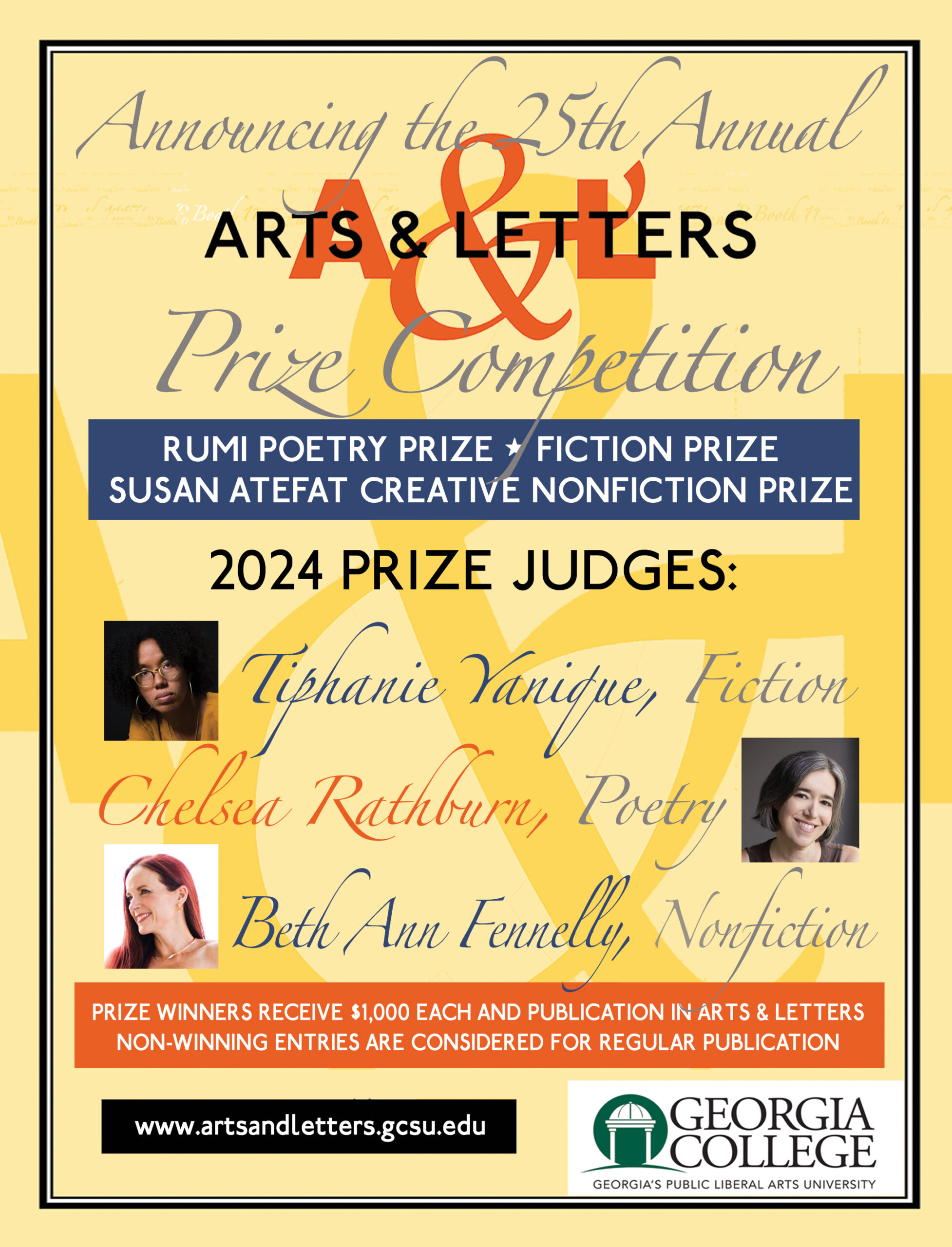What more fitting time than the arrival of spring to imagine growing an audience for your writing? Fortunately there are a number of writing contests with a March 15 deadline to consider. Prizes include $15,000 for a debut novel published during the current year (six finalists receive $1,000 each); $10,000 for a novel-in-progress by a debut author (a first and second runner-up receive $3,000 and $2,000, respectively); and five prizes of $10,000, plus publication by one of five participating trade, university, or small press publishers, for poetry collections by U.S. poets. Nine other awards offer publication and prizes ranging from $500 to $3,000 for work in various genres. Best of luck!
Bellingham Review
Literary Awards
Three prizes of $1,000 each and publication in Bellingham Review are given annually for works of poetry, fiction, and creative nonfiction. The 49th Parallel Award for Poetry is given for a poem or group of poems. The Tobias Wolff Award for Fiction is given for a short story or a work of flash fiction. The Annie Dillard Award for Creative Nonfiction is given for an essay or a work of flash nonfiction. All entries are considered for publication. English translations of works originally written in another language are accepted. Entry fee: $15.
Broadside Lotus Press
Naomi Long Madgett Poetry Award
A prize of $500 and publication by Broadside Lotus Press is given annually for a poetry collection by an African American poet. Entry fee: None.
The Center for Fiction
First Novel Prize
A prize of $15,000 is given annually for a debut novel by an American citizen published in the United States during the current year. Six finalists receive $1,000 each. Self-published works, books published exclusively in e-book editions, and novels previously published in other countries are not eligible. Small independent publishers may apply for a fee reduction. Entry fee: $100.
Fourth Genre
Steinberg Memorial Essay Prize
A prize of $1,000 and publication in Fourth Genre is given annually for an essay. Sarah Viren will judge. All entries are considered for publication. Entry fee: $20.
Indiana Review
Poetry and Creative Nonfiction Prizes
Two prizes of $1,000 each and publication in Indiana Review are given annually for a single poem and an essay. Entry fee: $20 (includes a subscription to Indiana Review).
James Jones Literary Society
First Novel Fellowship
A prize of $10,000 is given annually for a novel-in-progress by a U.S. writer who has not published a novel. The first runner-up receives $3,000 and the second runner-up receives $2,000. Entry fee: $33.
National Poetry Series
Open Competition
Five prizes of $10,000 each and publication by participating trade, university, or small press publishers are given annually for poetry collections by U.S. poets. Entry fee: $35.
Prairie Schooner
Raz-Shumaker Book Prizes
Two prizes of $3,000 each and publication by University of Nebraska Press are given annually for a poetry collection and a story collection. Kwame Dawes will judge. Entry fee: $25.
Robinson Jeffers Tor House Foundation
Poetry Prize
A prize of $1,000 is given annually for a single poem. Sun Yung Shin will judge. Entry fee: $10.
Trio House Press
Louise Bogan Award
A prize of $1,000, publication by Trio House Press, and 20 author copies is given annually for a poetry collection by a poet living in the United States. Oliver de la Paz will judge. Entry fee: $25.
Trio House Press
Trio Award for First or Second Book
A prize of $1,000, publication by Trio House Press, and 20 author copies is given annually for a first or second poetry collection by a poet living in the United States. Jessica Q. Stark will judge. Entry fee: $25.
Verse
Tomaž Šalamun Prize
A prize of $1,000 and publication by Factory Hollow Press is given annually for a poetry chapbook. The winner also receives a monthlong residency in a private apartment at the Tomaž Šalamun Centre for Poetry in Ljubljana, Slovenia, in summer 2025. Prose poetry, hybrid works, and translations of works of poetry by living writers from any language into English (with the relevant permission) are also eligible. Shane McCrae will judge. Entry fee: $17 ($13 for students).
The Word Works
Washington Prize
A prize of $1,500 and publication by the Word Works is given annually to a U.S. or Canadian poet for a poetry collection. Entry fee: $25.
Visit the contest websites for complete guidelines, and check out the Grants & Awards database and Submission Calendar for more contests in poetry, fiction, creative nonfiction, and translation.





